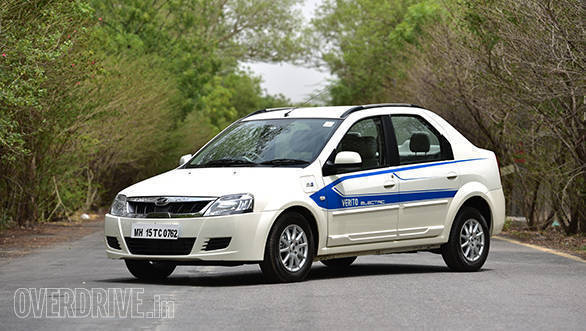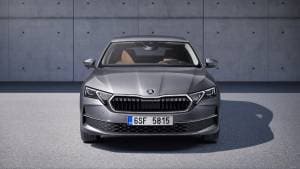An electric future!
Nitin Gadkari's threat to the automotive industry to, change over to electric cars or else he would bulldoze the issue through, at the Society Of Indian Automotive Manufacturer's annual convention in New Delhi in September has some very strong and very scary roots. Globally India is the third largest greenhouse gas emitter in the world, fourth (if that's any consolation) if you take all of the European Union into account. India's contribution to global pollution stands at 6.65 per cent or around 2909.1 million tonnes CO2e, of that 4.64 per cent comes from energy generation. This includes burning of oil, coal and gas and one of the largest contributions thus comes from generation of electricity, which in India is largely coal-fed. Automobiles also play a part in that 4.64 percent. Keep the numbers aside for a moment though and what you will all know is that air quality and pollution in any city that you live in, in India is deplorable.
So whatever reasons Mr Gadkari may have had to antagonise the Indian automotive industry during the SIAM convention, we should all consider one fact. Electric cars are coming our way, and it does not matter whether it happens by 2030 or later, an electric mobility future is inevitable.
Now for the fact that a lot of media reports, us included, highlighted the outrage Mr Gadkari's comments evoked. If you read the stories carefully you will realise that the noise is not so much about the electric mobility mission, but the fact that policies in India change rapidly. And, as a result of such drastic policy change, the industry is not in a position to respond in kind, nor plan a roadmap. But electric mobility is not something that was drummed up yesterday. Most of the automotive industry is or should have been prepared for it. The clarion call for a cleaner environment is not something that came up last week. A senior automotive industry stalwart was quoted saying that a millions of vehicles could not be converted to electric all of a sudden. But the point is that we have to start somewhere. Some manufacturers like Mahindra, Hero, Tata Motors are a bit ahead of the curve having made significant investments in electric technology, but some others will throw in a spanner or two and try to prolong the introduction of electric cars until the courts slam the gavel. So I don't think the automotive industry should be shocked, instead the next 13 years and that is a lot of time at hand, should be invested a bit more wisely.

The bigger question mark should however have been posed to energy generation and infrastructure. Piyush Goyal, minister of state for power, coal, new and renewable energy and mines calmly states that India has an energy surplus. Mr Goyal, a few months ago, had said that India has enough coal to ensure we never go out of power. But, coal fed power generation isn't the solution. Research shows its one of the dirtiest in terms of emissions, and one of the primary contributors to India's high place on global pollution lists. Environmentalist Sunita Narain, on the other hand extols how India's investments in solar power generation outrivals that of the USA. But India's population cannot be served by whatever is being done here compared to what is being done in the US for their population which is less than a quarter compared to India. And the power we generate is largely accounted for already. What happens when we go full electric, how will our energy needs be satiated then. What happens to the grid when the 25 million plus vehicles that we churn out annually have to source power from it! There is of course a huge opportunity here for those wise enough to invest in solar power generation.
But finally what will the real challenge be for electric vehicle adoption? In my opinion it's consumer opinion and acceptability. Consumer opinion is rather weak and pessimistic at the moment, but this is also based on the electric cars we have seen this far. For a manufacturer to get the electric revolution kick-started they have will have to develop a car that is practical, stylish, comfortable...essentially everything an IC engine powered car is, without the IC engine! As for acceptability, this is where the government will need to step in. Satisfy power demands and infrastructure provisions. A primary concern most consumers live with is where will they charge their cars. New housing projects will provide charging points, but the millions of older units don't have any charging facilities. And what about the commercial vehicle sector, where do they charge their vehicles?
Discarding hundreds of years of internal combustion engine development and usage to be replaced by a whole new type of powertrain is not going to be easy. The industry can be stunned, but its a falsetto! For once, I'm on Gadkari's side for this change to happen. 2030 sets a deadline, now the objective should be to create the roadmap to get there, and then execute it.











